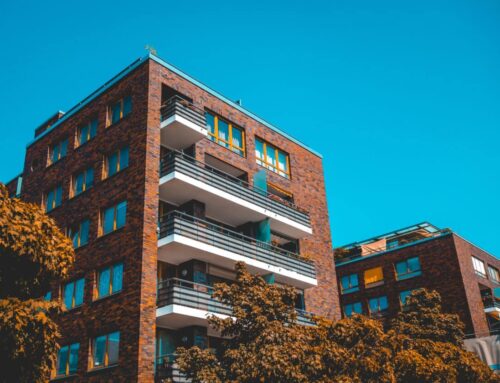Have you ever looked at your insurance renewal documents to find your Buildings premium has risen well beyond inflation? Often the increase is due to the cost of your claims, but Belinda Thorpe, Managing Director at Residentsline explains you CAN do something about it.
Risk Management is the key to reducing claims and also to maintaining or reducing your insurance premium. Water damage accounts for around 75% of insurance claims in flats and apartments. It generally occurs following inadequate maintenance leading to corrosion of internal and external pipework, leakage of copper pipe or failure of plastic pipe joints, poor maintenance of seals around bath and shower areas, and accidental damage to hidden pipes.
How to reduce the risk of water damage
First – ensure all pipes and tanks exposed to winter temperatures are well insulated, then
- Be aware of the equipment and installations in your block that are capable of causing a problem, for example, boilers, showers and washing machines. Guidance should be put in place for all residents to ensure regular checks are carried out as part of a planned preventative maintenance programme.
- Advise all leaseholders on what to do in the event of a leak, how to isolate their water supply or shut down central heating systems etc.
- Ensure all leaseholders know where the stop cocks are located. These should be accessible and easily turned. Stop cocks can seize due to minimal usage.
- Only use approved contractors when maintenance, repairs or replacement works are carried out.
In your kitchen and bathroom
- Check appliance inlet and outlet fittings annually.
- Clean door collar seals on washing machines and dishwashers, replacing any that are damaged or worn.
- Annually check that the seal around your bath and/or shower is water tight.
- Don’t allow your bath to overflow!
- Ensure plugs are not in the drain holes when not in use.
- Replace washers in leaking taps and overflowing cisterns as soon as possible.
- Ensure overflow pipes can release water effectively.
With your central heating
- Carry out an annual check on central heating tanks and systems.
- Ensure “shut off” valves are located in easily accessible places and that you know how to use them.
- Check radiator valves regularly for leaks.
- Prior to un-occupancy for more than a few days during the winter period leave central heating ON and at a low setting to prevent the pipes from freezing.
In a block of flats a water leak or burst pipe can cause devastating damage to the structure of the building, electrical wiring, fixtures and fittings as well as damage to contents.
Unfortunately, most water leaks do not inconvenience the flat owner with the leak, but usually the blameless occupier below. Water management devices such as Sure Stopand Leak Safehave become popular with flat and apartment owners – with the mere flick of a switch, water flow is restricted whilst you are out or away.
Actions to take on discovery of a leak
- Turn off the water supply stop cock. Make sure you know where it is.
- If there is no shut off stop cock located inside the flat then it may have a shared water supply, so make sure you can get to the stop valve – this is normally located where the water enters the building, then tell your neighbours, as their water supply may be affected.
- If appropriate, turn off central heating and any other water heating systems.
- Drain water pipes and tanks. Once the water heating systems have been shut down, turn on the taps to help drain the system fully of the remaining water to minimise damage.
- Turn off the electrics if the escape of water is near your electrical wiring or appliances. If any live electrical equipment is wet, do not touch it – send for a qualified electrician.
- Warn the occupiers of the flats directly below so that steps may be taken to reduce the likelihood of any damage to their properties.
- If water starts to seep through the ceiling, place a container underneath.
- Should the ceiling begin to bulge consider piercing the plaster with a wooden broom handle or similar implement to release the water and prevent the ceiling from collapsing. Care may need to be taken against disturbing any asbestos contained in artex covered ceilings.
- Notify your Insurer, Management Committee and or Property Managing Agent and Maintenance Company, as appropriate, as soon as possible and find a reputable plumber to effect repairs. Your insurance company or Residents’ Management Company may be able to provide you with details of preferred and competent contractors.
Afterwards, always remember to make sure that your hot water system is completely refilled again without airlocks before switching on boilers, or switching on immersion heaters in tanks etc.
Water damage can cost tens of thousands of pounds. Suitable measures such as those outlined above will help control your insurance costs.
For more information visit www.residentsline.co.uk or contact the Residentsline Team on 0800 281 235.




Leave A Comment